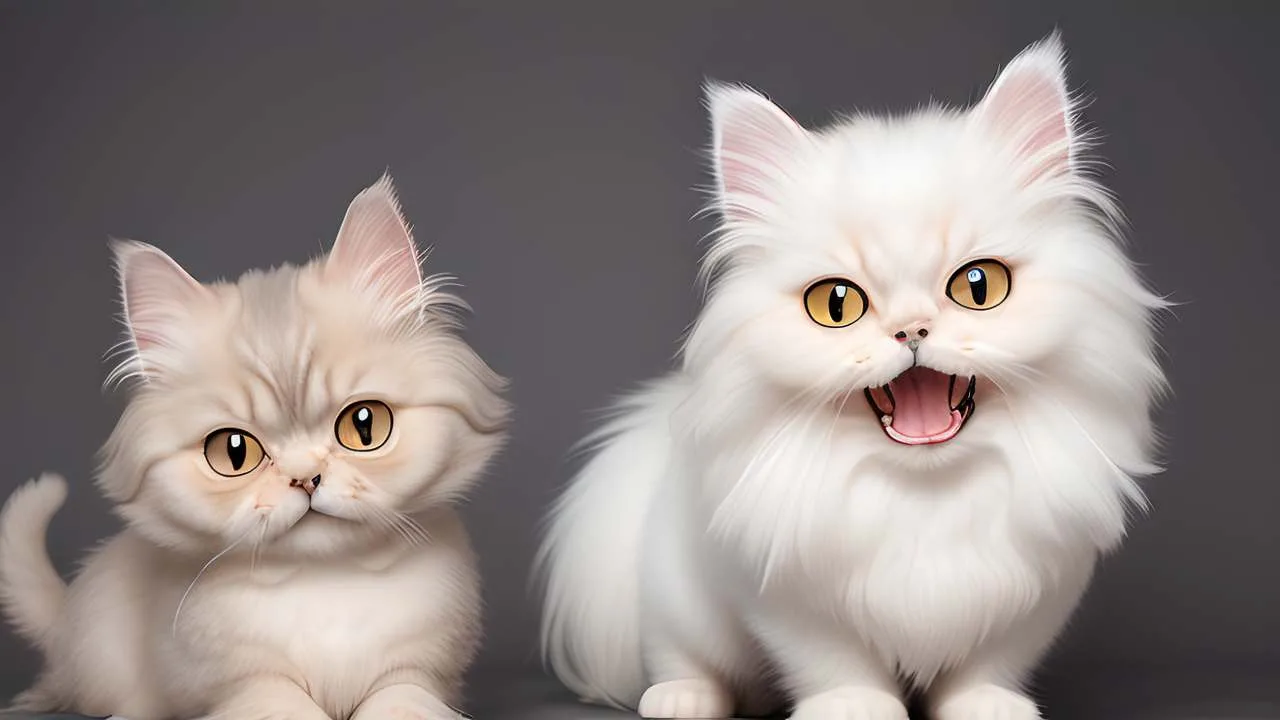Gingivitis, a common dental issue in Persian cat breeds, can be a persistent and dangerous problem if left untreated. If you have a Persian cat, it’s crucial to understand the causes and risk factors for chronic gingivitis in order to prevent serious dental and overall health issues. In this informative blog post, we will explore the various factors that contribute to chronic gingivitis in Persian cat breeds, as well as provide tips on how to maintain your cat’s dental health and prevent this condition.
Key Takeaways:
- Genetic predisposition: Persian cat breeds are more prone to developing chronic gingivitis due to their genetic makeup. This can lead to increased inflammation and plaque buildup in their teeth.
- Diet and dental care: Poor diet and lack of regular dental care contribute to the development of chronic gingivitis in Persian cats. A diet high in carbohydrates and lack of dental hygiene can exacerbate the condition.
- Anatomy of Persian cat’s mouth: The anatomy of a Persian cat’s mouth, such as its flat face and crowded teeth, can contribute to the development of chronic gingivitis. These physical attributes can make it more difficult to maintain proper dental hygiene, leading to an increased risk of gum disease.
Causes of Chronic Gingivitis in Persian Cat Breeds
Any What Causes Dental Disease in Cats can potentially lead to chronic gingivitis in Persian cat breeds. However, there are specific factors that are more commonly associated with this condition in Persians. Understanding the causes can help you take proactive steps to prevent and manage chronic gingivitis in your beloved pet.
Genetics of Persian Cat Breeds
Due to the selective breeding of Persian cats, they are more prone to dental issues, including chronic gingivitis. Certain genetic factors can make them more susceptible to gum inflammation and periodontal disease. It’s important to be aware of this predisposition and take appropriate measures to ensure your cat’s dental health is properly managed.
Diet and Lifestyle Factors
When it comes to diet and lifestyle, nutrition plays a crucial role in your cat’s oral health. A diet lacking in essential nutrients can weaken your cat’s immune system and make them more susceptible to dental problems. Additionally, poor dental hygiene and lack of regular dental care can contribute to chronic gingivitis. Smoking around your cat can also have a negative impact on their oral health. Assume that your cat’s diet and lifestyle choices are directly linked to their likelihood of developing chronic gingivitis, and take the necessary steps to address these factors.
Symptoms and Diagnosis of Chronic Gingivitis in Persian Cat Breeds
Now that you understand the causes of chronic gingivitis in Persian cat breeds, it’s important to recognize the symptoms and seek prompt veterinary diagnosis. Chronic gingivitis can manifest in various ways in your Persian cat’s mouth, including redness, swelling, and bleeding of the gums, foul breath, drooling, and difficulty eating. If you notice these symptoms in your cat, it’s crucial to seek veterinary evaluation right away to determine the extent of the dental issue.
Recognizing Dental Issues in Persian Cats
Recognizing dental issues in your Persian cat can be challenging, as cats are known for hiding their pain and discomfort. However, if you notice your cat having difficulty eating, pawing at their mouth, or displaying reluctance to chew on toys or treats, these could be signs of dental issues. To ensure your cat’s dental health, it is important to monitor their eating habits and behavior closely.
Veterinary Diagnosis: Tests and Procedures
When you bring your Persian cat to the veterinarian for a dental evaluation, they will conduct a thorough examination of your cat’s mouth, looking for signs of inflammation, plaque, or tartar build-up. In some cases, X-rays may be necessary to assess the extent of dental issues, determine if there’s any damage to the teeth or surrounding tissues, and identify potential root problems. Your veterinarian may also perform a dental cleaning under anesthesia to remove plaque and tartar from the teeth and gums, allowing for a more thorough assessment of your cat’s dental health.
Treatment and Prevention of Chronic Gingivitis in Persian Cat Breeds
To effectively manage and prevent chronic gingivitis in Persian cat breeds, you need to be proactive in your approach to dental care. It’s essential to understand the treatment options and strategies for prevention to ensure your cat’s dental health.
Current Treatment Options
When it comes to treating chronic gingivitis in Persian cat breeds, it’s crucial to consult your veterinarian for an accurate diagnosis and treatment plan. Your veterinarian may recommend professional dental cleanings under anesthesia to remove tartar and plaque buildup, as well as any infected or damaged teeth that could be causing the inflammation. Additionally, your veterinarian may prescribe antibiotics or anti-inflammatory medications to manage the infection and reduce dental pain in your cat. Remember, early detection and prompt treatment are key to minimizing the progression of chronic gingivitis in your Persian cat.
Strategies for Prevention
To prevent chronic gingivitis in Persian cat breeds, you can take proactive steps at home to maintain your cat’s dental health. This includes brushing your cat’s teeth regularly with a feline-specific toothbrush and toothpaste, as well as providing dental chews and toys to help control plaque accumulation. Additionally, you should schedule regular dental check-ups with your veterinarian to monitor your cat’s oral health and address any potential issues early on. By prioritizing preventive dental care and regular veterinary consultations, you can significantly reduce the risk of chronic gingivitis in your Persian cat.
For more in-depth information on gingivitis in cats, including symptoms, treatment, and prevention, you can refer to the following resource: Gingivitis in Cats: Symptoms, Treatment, and Prevention.
What Causes Chronic Gingivitis In Persian Cat Breeds’ Teeth?
So, now that you understand the potential causes of chronic gingivitis in Persian cat breeds, it’s important to take proactive measures to prevent this condition in your own pet. Regular dental care, including brushing your cat’s teeth, providing dental treats and toys, and scheduling regular dental cleanings with a veterinarian, can all work together to keep your Persian cat’s teeth and gums healthy. Additionally, ensuring that your cat’s diet is well-balanced and free from excessive sugars can also contribute to preventing chronic gingivitis. By following these preventive measures, you can help your Persian cat maintain optimal oral health and overall well-being.
FAQ
Q: What is chronic gingivitis in Persian cat breeds?
A: Chronic gingivitis in Persian cat breeds is a persistent inflammation of the gums and surrounding tissues. This condition can lead to redness, swelling, and discomfort for the affected cat. If left untreated, chronic gingivitis can progress to more serious dental issues and impact the overall health of the cat.
Q: What causes chronic gingivitis in Persian cat breeds?
A: Chronic gingivitis in Persian cat breeds can be caused by a variety of factors, including poor dental hygiene, diet, genetics, and underlying health conditions. Plaque and tartar buildup on the teeth can lead to gum inflammation, while a diet lacking in nutrients essential for dental health can also contribute to the development of chronic gingivitis. Additionally, Persian cats may be predisposed to dental issues due to their breed’s unique facial structure.
Q: How can chronic gingivitis in Persian cat breeds be prevented and treated?
A: Prevention of chronic gingivitis in Persian cat breeds involves regular dental care, including brushing the cat’s teeth, providing dental treats or toys, and scheduling routine check-ups with a veterinarian. If chronic gingivitis is diagnosed, treatment may involve professional dental cleanings, medication to reduce inflammation, and dietary changes to support dental health. In severe cases, extractions or other dental procedures may be necessary to alleviate the condition and prevent further complications.



